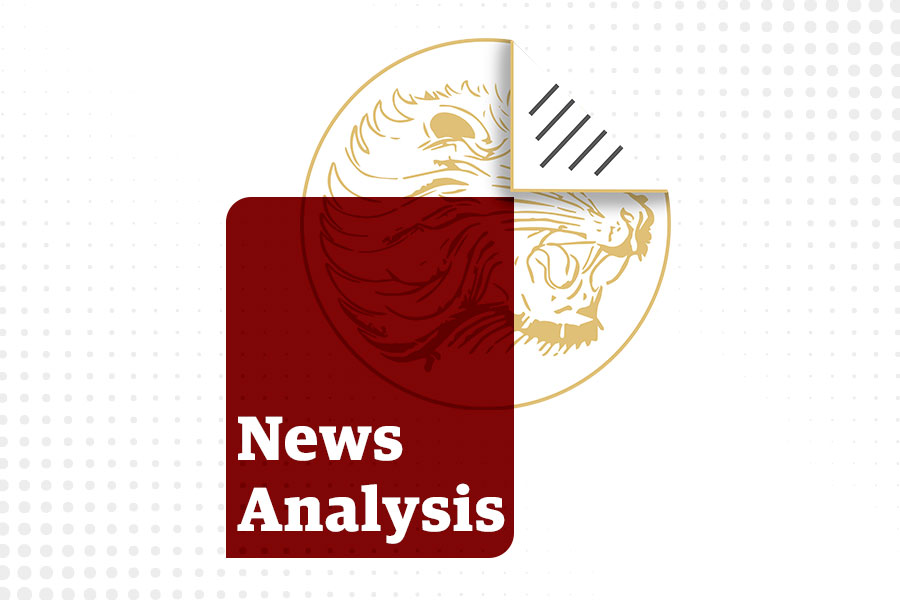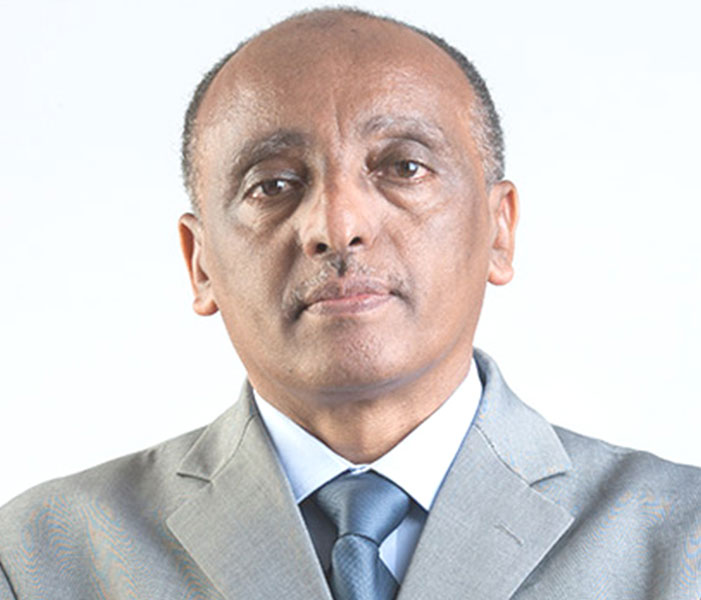
Commentaries | Mar 05,2022
Apr 25 , 2020
By Eden Sahle
In Ethiopia, there is a harmful cultural norm that focuses on blaming victims, making it difficult to have important conversations that might bring support. Perpetrators are protected by the conservative views of society, and this has led to the perpetuation of abuse of the most vulnerable groups.
Several years ago, I met a woman that was undergoing some sort of physical and psychological trauma. When I met her at my friend’s house, she was acting like someone who had lost her sanity. After several hours of trying to calm her down, we succeeded, and she went home.
The whole situation was a horrific thing to observe. I asked my friend's family what happened to the woman, and they replied that it was a well-known fact around the neighbourhood that she was a victim of domestic abuse. People had tried to report the matter to the police, but they were not only stopped but threatened by members of the woman’s family.
I took the woman's contact information and approached her to encourage her to seek help. It was confusing to hear her explain how much she and her family loved each other. A year ago, she told me that she got married and left her parents’ house. But her wounds and bruises persisted. When she was asked what had occurred, she would insist that she had gotten into an accident at work or on her way there.
She kept contact with me over the phone as well and always maintained what a great character her husband was. But last week I received a call from her. Sobbing, she told me that her husband had been abusing her physically and verbally for years. She reminded me of the visible physical wounds I had seen.
It was then that I begged her to seek help and inform the police and her employers. But this made her distant all of a sudden. She refused to contact the authorities about this and in fact seemed to regret ever telling me this.
Since such problems are embedded deeply in society, law enforcement bodies and those working to respect human rights often never find out about such hidden crimes. This puts an enormous burden on the victims. Discouraged to seek help by societal norms and expectations, and fearing the lack of empathy to the religious, social and economic circumstances they feel they have to contend with, victims often fail to seek any help.
No doubt, we each have the ability to speak truth and better ourselves. When we are true to ourselves and let others see the real us, we reap a fruitful life that nurtures ourselves and others. But when we try to hide we are only robbing ourselves of the possible ways we could be helped.
Seeking help can allow us to dig ourselves out of the hardships we suffer. Most people are afraid to open up and point out what is holding them back. In fact, a good number of people are convinced that once they are in trouble, they have no way out. But this is far from the truth. There is always some way to escape.
Indeed, for many, this is easier said than done. It is not easy to escape from a life of abuse and exploitation, often because the victims are deeply tied to the perpetrators culturally and economically. They are less likely to dare to speak out when they feel that their survival depends on the house and the financial benefits the perpetrators themselves provide them. This is not to mention the cultural and religious norms that often require these vulnerable groups themselves to excuse and forgive their perpetrators.
What we require is a two-pronged approach. We need to have sympathy for their predicament and how they are often unable to escape the abuse they are faced with. There are shackles attached to their ankles that are often hard to see and complicated for the victims themselves to describe.
By the same token, we need to insist on the importance of victims coming forward. It is by opening up to those that we trust that we can find a possible solution to the problems we face. This will, doubtless, be hard, but we need to reach out our hands to them and make the process easier.
Without looking at the problem from these two sides, it will be impossible to address it.
PUBLISHED ON
Apr 25,2020 [ VOL
21 , NO
1043]

Commentaries | Mar 05,2022

My Opinion | Mar 27,2021

Fortune News | Nov 13,2021

News Analysis | Jul 07,2024

Commentaries | Apr 13,2019

Commentaries | Mar 28,2020

Verbatim | Nov 04,2023

Viewpoints | Oct 14,2023

Viewpoints | May 23,2021

Fortune News | Oct 30,2022

My Opinion | 131548 Views | Aug 14,2021

My Opinion | 127903 Views | Aug 21,2021

My Opinion | 125879 Views | Sep 10,2021

My Opinion | 123510 Views | Aug 07,2021

Dec 22 , 2024 . By TIZITA SHEWAFERAW
Charged with transforming colossal state-owned enterprises into modern and competitiv...

Aug 18 , 2024 . By AKSAH ITALO
Although predictable Yonas Zerihun's job in the ride-hailing service is not immune to...

Jul 28 , 2024 . By TIZITA SHEWAFERAW
Unhabitual, perhaps too many, Samuel Gebreyohannes, 38, used to occasionally enjoy a couple of beers at breakfast. However, he recently swit...

Jul 13 , 2024 . By AKSAH ITALO
Investors who rely on tractors, trucks, and field vehicles for commuting, transporting commodities, and f...

Jun 28 , 2025
Meseret Damtie, the assertive auditor general, has never been shy about naming names...

Jun 21 , 2025
A well-worn adage says, “Budget is not destiny, but it is direction.” Examining t...

Jun 14 , 2025
Yet again, the Horn of Africa is bracing for trouble. A region already frayed by wars...

Jun 7 , 2025
Few promises shine brighter in Addis Abeba than the pledge of a roof for every family...

Jun 29 , 2025
Addis Abeba's first rains have coincided with a sweeping rise in private school tuition, prompting the city's education...

Jun 29 , 2025 . By BEZAWIT HULUAGER
Central Bank Governor Mamo Mihretu claimed a bold reconfiguration of monetary policy...

Jun 29 , 2025 . By BEZAWIT HULUAGER
The federal government is betting on a sweeping overhaul of the driver licensing regi...

Jun 29 , 2025 . By NAHOM AYELE
Gadaa Bank has listed 1.2 million shares on the Ethiopian Securities Exchange (ESX),...